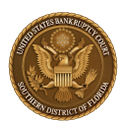Below, find information on financial planning, programs that provide general information on financial literacy, and agencies that offer consumer protection. Please note: These links are to general financial planning websites only and are not the U.S. Trustee approved providers of the court required Credit Counseling & Debtor Education courses.
C.A.R.E.
The Credit Abuse Resistance Education (C.A.R.E.) is a 501(c)(3) national nonprofit organization dedicated to coach high school students and young adults on how to responsibly use credit and other financial services they may need in life. What sets C.A.R.E. apart from other financial education programs for young adults is its team of volunteers, which consist of bankruptcy judges, lawyers, and financial professionals, who bring their real-life experiences working with individuals in financial distress into the classroom.
FoolProof
Billed as C.A.R.E.’s financial literacy partner and endorsed by the National Association of Consumer Advocates, FoolProof® provides online newspapers and modules for all age groups: high school (15 hours and 6 modules), home‐schooled, community groups, parents, college‐age students, young adults, and adults.
Fundamentals of Personal Financial Planning
This is an online course hosted by the University of California‐Irvine. It provides a comprehensive but easily understood overview of personal financial planning widely available to the general public.
Money 101
This is an online series of 23 easy lessons hosted by CNNMoney.com.
Financial Education (Money Management International)
This website provides money management resources to assist you as you begin to make positive changes in your financial life.
Retirement Planning
Three online courses offered by Rutgers, the University of Illinois, and Purdue deal with retirement planning:
Thirty Steps to Financial Wellness
Materials available through the National Financial Literacy Month Home Page includes 30 steps to financial wellness. The steps include such things as a quiz, suggestions for clearing out financial clutter, correcting credit reports, planning savings accounts, and creating a spending plan. In addition, the home page includes a link to Tools for Success, which then links to different resources, such as different worksheets and an eBook titled “Tips for Change.”
My Money Five
The MyMoney Five are the building blocks for managing and growing your money. This is the U.S. government's website dedicated to teaching all Americans the basics about financial education. The site boasts that “[w]hether you are buying a home, balancing your checkbook, or investing in your 401(k), the resources on MyMoney.gov can help you maximize your financial decisions.” The site includes a collection of resources for all kinds of people – kids, teachers, parents, caregivers, the military, women, retirees, and employers.
Get Rich Slowly
This website features articles about basic financial skills, such as budgeting, handling bank accounts, credit and credit cards, and investing.
Smart About Money (SAM)
One of the programs of the National Endowment for Financial Education organization, which started the annual Financial Literacy celebration, provides free online courses and a broad range of financial topics to empower Americans to make positive and sound decisions to reach their financial goals.
- For college kids: Forty Money Management Tips Every College Student Should Know
Consumer Finance Protection Bureau
The central mission of the Consumer Financial Protection Bureau (CFPB) is to make markets for consumer financial products and services work for Americans—whether they are applying for a mortgage, choosing among credit cards, or using any number of other consumer financial products.
